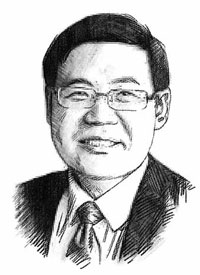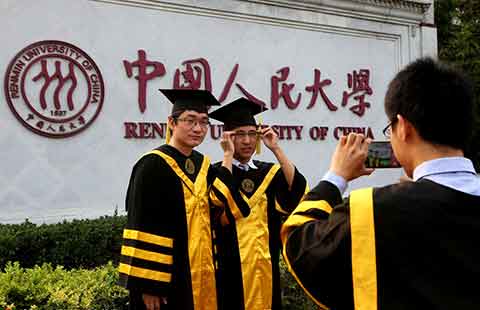Improved environment for talks?
(China Daily) Updated: 2012-11-29 11:21


Pan Jiahua,
director of the Institute for Urban and Environmental Studies of the Chinese Academy of Social Sciences
A1 I have five expectations for the Doha conference.

All parties come up with clear commitment and implementable plans and arrangements on how to continue the second commitment period under the Kyoto Protocol.
Those developed countries that don't join the protocol should make a comparable commitment as "role models". Otherwise, developing countries won't have the confidence to reduce greenhouse gas emissions.
Though negotiations under the long-term cooperative action working group won't reach a complete consensus, issues such as long-term goals and how the funds should be used can be transferred to the Durban platform for further discussion.
The Durban platform should be launched smoothly. Otherwise, we will encounter greater obstacles in reaching a global legally binding agreement before 2015.
When it comes to the funding issue, developed countries should take the action they've promised in the past. So far, many pledges remain void and many funds still lack money.
There should be progress on all these five aspects.
A2 One of the main sticking points at the conference could be the implementation period of the second commitment period under the Kyoto Protocol, which is until 2017, as small island countries have called for, or until 2020, as the European Union has proposed. Another sticking point could be the emission reduction obligations and responsibilities of developed countries after 2012.
A3 I think the negotiations on the second commitment period under the Kyoto Protocol may come to an imperfect conclusion at the Doha conference, with insufficient commitments made by developed countries, not enough countries signing up to the protocol, and an unclear ending date of the second commitment period under the protocol. Many developed countries may not want to be involved with the second commitment period and will strive to conduct climate change negotiations under the Durban platform. By doing so, they may avoid making any commitment before 2020, which would be disappointing.
A4 Under the current circumstances, there are still contradictions between cutting emissions and continuing to develop. What if we treat the "zero carbon industry" as an opportunity rather than a restriction? Developing renewable energy, such as wind and solar power, and processes such as the production and the installation of aerogenerators and solar water heaters can help boost the manufacturing industry, generating a market even bigger than the automobile industry. By then we will achieve a win-win situation of zero-carbon development and economic development.
- Xi stresses supply-side reform in CPC anniversary speech
- China's Evergrande denies AC Milan deal
- Chinese bank extends $1.5b loan to Saudi power company
- Man beats machine in facial recognition
- Find out what makes China's Silicon Valley tick
- China Caixin manufacturing PMI slumps to 48.6
- China's current account surplus to stay despite sharp drop
- Chinese company Hisense reaps benefits from Euro 2016 sponsorship


















